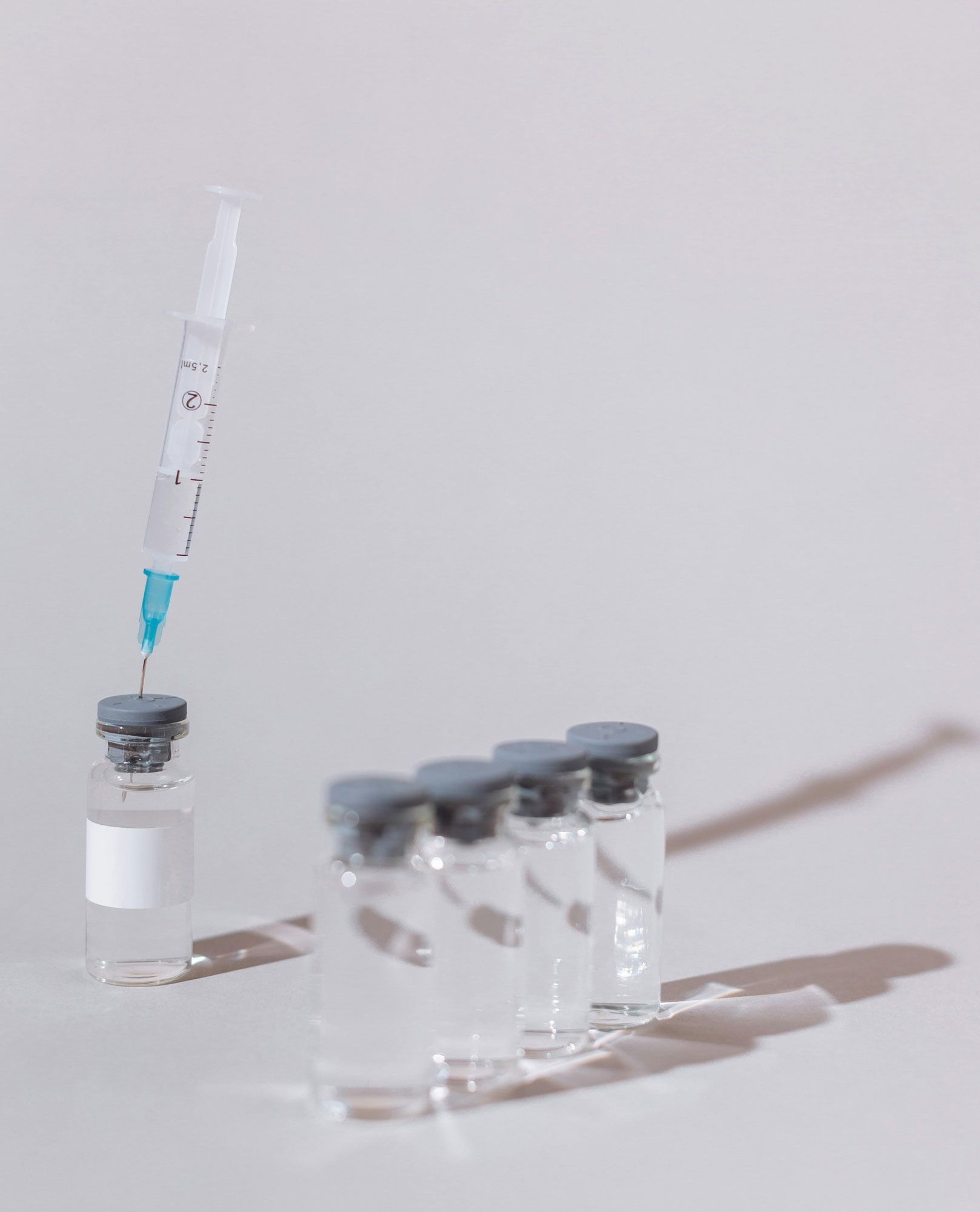Questions to Ask About Ketamine Treatment
If you or someone you know is considering ketamine treatment for mental health conditions such as depression or anxiety, it's important to ask the right questions before starting treatment. Ketamine treatment has gained popularity in recent years as a potential alternative therapy for those who have not responded well to traditional medications or therapies. However, it's essential to understand the treatment, the risks involved, and what to expect before beginning ketamine therapy.
By knowing the right questions to pose to your healthcare provider, you can ensure that you are well-prepared for this unique treatment approach.
Here are some important questions to ask your healthcare provider before starting ketamine treatment:

1. What is Ketamine and how does it work?
It's crucial to have a basic understanding of ketamine and how it works in the body. Ketamine is a type of dissociative anesthetic, meaning it can disrupt the brain's interpretation of sensory stimuli, leading to feelings of detachment from reality. It works by blocking the NMDA receptors in the brain, which are responsible for regulating the transmission of pain signals. By blocking these receptors, ketamine is able to reduce the perception of pain and induce a state of sedation.
Ketamine also affects various neurotransmitters in the brain, including glutamate and gamma-aminobutyric acid (GABA). These neurotransmitters play a key role in mood regulation, and by modulating their activity, ketamine is believed to have antidepressant effects. Some studies suggest that ketamine can rapidly alleviate symptoms of depression and improve mood within hours of administration, making it a potentially revolutionary treatment for individuals who have not responded to traditional antidepressants.
One of the most unique aspects of ketamine is its ability to produce psychedelic and dissociative effects at subanesthetic doses. These effects are thought to play a role in its antidepressant properties, as they may help individuals gain a new perspective on their emotions and thought patterns. However, it is important to note that these effects can be intense and may not be well tolerated by everyone.
Despite its potential benefits, ketamine is not without risks. It can cause side effects such as dizziness, nausea, confusion, and dissociation. Long-term use of ketamine can also lead to dependence and tolerance, as well as potential bladder and kidney issues. Therefore, ketamine treatment should be closely monitored by a healthcare provider to minimize these risks.
2. What conditions can ketamine treat?
One of the most well-known uses of ketamine is in the treatment of depression. Studies have shown that ketamine can rapidly reduce symptoms of depression in individuals who have not responded to traditional treatments such as antidepressant medications or therapy. Ketamine works by blocking certain receptors in the brain that are responsible for regulating mood, leading to a quick improvement in symptoms for many patients.
Ketamine has also been found to be effective in treating anxiety disorders. Research has shown that ketamine can help to reduce symptoms of anxiety in individuals with conditions such as generalized anxiety disorder, social anxiety disorder, and post-traumatic stress disorder. By targeting the same receptors in the brain that are involved in mood regulation, ketamine can provide relief for individuals struggling with anxiety.
Ketamine has also shown promise in the treatment of chronic pain conditions. Studies have found that ketamine can help to reduce pain levels in individuals with conditions such as fibromyalgia, neuropathic pain, and chronic migraines. By blocking certain receptors in the brain that are involved in pain processing, ketamine can provide significant relief for those suffering from chronic pain.
3. What are the potential side effects and risks of ketamine treatment?
Ketamine, a powerful anesthetic medication, has gained popularity in recent years for its potential to treat mental health conditions such as depression, anxiety, and PTSD. However, like any medication, ketamine treatment is not without risks and potential side effects.
One of the most common side effects of ketamine treatment is dissociation, a feeling of being disconnected from reality. This can be an unsettling experience for some individuals and may exacerbate symptoms of anxiety or depression. In some cases, individuals may also experience hallucinations or altered perceptions while under the influence of ketamine.
Another risk associated with ketamine treatment is the potential for developing a tolerance to the medication. Over time, individuals may require higher doses of ketamine to achieve the same therapeutic effects, which can increase the risk of side effects and potential long-term health consequences.
Additionally, ketamine has the potential for abuse and dependence. Individuals who misuse ketamine may experience a range of negative consequences, including cognitive impairment, physical health problems, and addiction. It is crucial for individuals to follow their healthcare provider's instructions closely and communicate any concerns or changes in symptoms during treatment.
There are also potential physical side effects of ketamine treatment, including nausea, dizziness, and elevated blood pressure. In rare cases, individuals may experience more serious adverse reactions, such as respiratory depression or cardiovascular complications. It is essential for individuals receiving ketamine treatment to undergo thorough medical screening and monitoring to minimize the risk of these complications.
4. How will the ketamine be administered?
There are several different ways that ketamine can be given to patients, depending on the specific condition being treated and the preferences of the individual. The most common methods of administering ketamine include:
- Intravenous (IV) infusion: This is the most common method of administering ketamine for mental health conditions. The drug is delivered directly into the bloodstream through a vein, allowing for rapid absorption and often producing quicker effects. IV ketamine infusions are typically done in a clinical setting under the supervision of a healthcare provider.
- Intramuscular (IM) injection: In some cases, ketamine may be given as an injection into a muscle, typically in the thigh or buttocks. This method can also provide rapid effects, but may be more painful than IV administration.
- Sublingual or intranasal: Ketamine can also be administered through the mucous membranes under the tongue or in the nose. These methods may be less invasive than injections and can still provide effective results, although they may not be as fast-acting as IV or IM administration.
- Oral: Some clinics offer ketamine tablets or lozenges for patients to take orally. This method may be more convenient for some individuals, but it can also take longer for the effects to be felt due to the slower absorption through the digestive system.
It's important for patients to discuss the different administration methods with their healthcare provider to determine the best approach for their individual needs and preferences. The provider will also take into account the specific condition being treated, the patient's medical history, and any potential risks or benefits associated with each method.
5. How many treatments will be needed, and what is the schedule for treatment?
The number ofamine treatments needed can vary depending on the individual and the severity of their condition. In general, most patients will require a series of treatments over a period of weeks or months to experience the full benefits of ketamine therapy. Typically, patients start with an initial series of 6-8 treatments spaced out over 2-3 weeks, with additional booster treatments as needed.
The treatment schedule for ketamine therapy can also vary depending on the individual and their response to the treatments. Some patients may benefit from more frequent treatments initially, while others may only need occasional booster treatments to maintain their results. Ultimately, the treatment schedule will be tailored to the individual patient's needs and response to therapy.
It's important to work closely with a qualified healthcare provider who specializes in ketamine therapy to develop a personalized treatment plan that is most effective for you. They will be able to monitor your progress and adjust your treatment schedule as needed to ensure you are getting the most benefit from ketamine therapy.
6. How will the effectiveness of the treatment be monitored?
Many individuals have reported significant improvement in their symptoms after undergoing ketamine infusions or nasal spray treatments. However, it is important to monitor the effectiveness of ketamine treatment to ensure that the desired outcomes are being achieved.
Monitoring the effectiveness of ketamine treatment can be done through a variety of methods. One common way is to track changes in symptoms through regular assessments with a healthcare provider. Patients can rate their mood, anxiety levels, and overall well-being on a scale to provide objective data on how they are feeling before and after treatment. By regularly monitoring these symptoms, healthcare providers can determine if the ketamine treatment is having a positive impact on the individual's mental health.
Another way to monitor the effectiveness of ketamine treatment is through brain imaging studies. Ketamine works by modulating certain neurotransmitters in the brain, such as glutamate and GABA, which can be visualized using imaging techniques like functional magnetic resonance imaging (fMRI). These studies can provide insight into how ketamine is affecting brain function and connectivity, which can help determine the effectiveness of the treatment.
Monitoring the effectiveness of ketamine treatment may also involve tracking any changes in medication dosages or treatment frequency. Some individuals may require adjustments to their ketamine regimen to achieve optimal results, which can be determined through ongoing communication with their healthcare provider.
7. How much will ketamine treatment cost?
The cost of ketamine treatment can vary depending on a variety of factors, including the type of treatment and the provider. Generally, ketamine therapy can range from $400 to $800 per session, with some providers offering package deals or discounts for multiple sessions.
It’s important to keep in mind that ketamine therapy is not typically covered by insurance, so individuals considering this treatment may need to pay out of pocket. However, some providers may offer financing options or accept health savings accounts (HSAs) to help offset the cost.
While the price tag for ketamine therapy may seem high, many individuals who have undergone treatment report significant improvements in their mental health and quality of life. For some, the benefits of ketamine therapy may outweigh the cost.
If you are considering ketamine therapy, it’s important to do your research and find a reputable provider that offers transparent pricing and takes your individual needs into account. Additionally, discussing your treatment options with a mental health professional can help you determine if ketamine therapy is the right choice for you.










